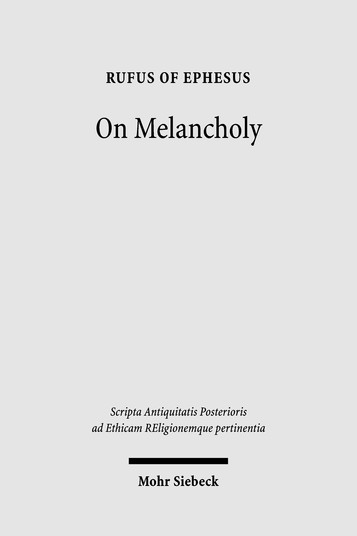| dc.description.abstract | Rufus of Ephesus’ treatise On Melancholy represents perhaps the most influential medical monograph from the late first century AD, since his notion of melancholy links two diverse aspects: black bile as a cause for madness and depression and as a sign of intellectual genius. Rufus combines concepts of melancholy developed in the Aristotelian philosophy with concepts of famous physicians such as Hippocrates and Diocles. His ideas strongly influenced subsequent generations of physicians, and especially Galen, and dominated discourses on the topic during the Middle Ages and the Renaissance. Moreover, the reception of Rufus' concepts was not limited to the Western world; in medieval Muslim culture, in particular, his work enjoyed great fame and favor, and many intellectuals read it eagerly.
In this volume, the Greek, Latin and Arabic fragments of this work, lost in the original, have been collected for the first time. Arabic sources in particular yield hitherto unknown fragments, thus allowing for new interpretations of this work. The English introduction, translation and commentary reconstruct the main arguments of this important treatise, enabling the interested scholar to obtain easy access to it. Leading scholars contributed interpretative essays which investigate Rufus and his ideas about melancholy in antiquity, the Middle Ages, the Renaissance and the early modern period from different vantage points, including history, philosophy, literature, art history and psychiatry. | |

